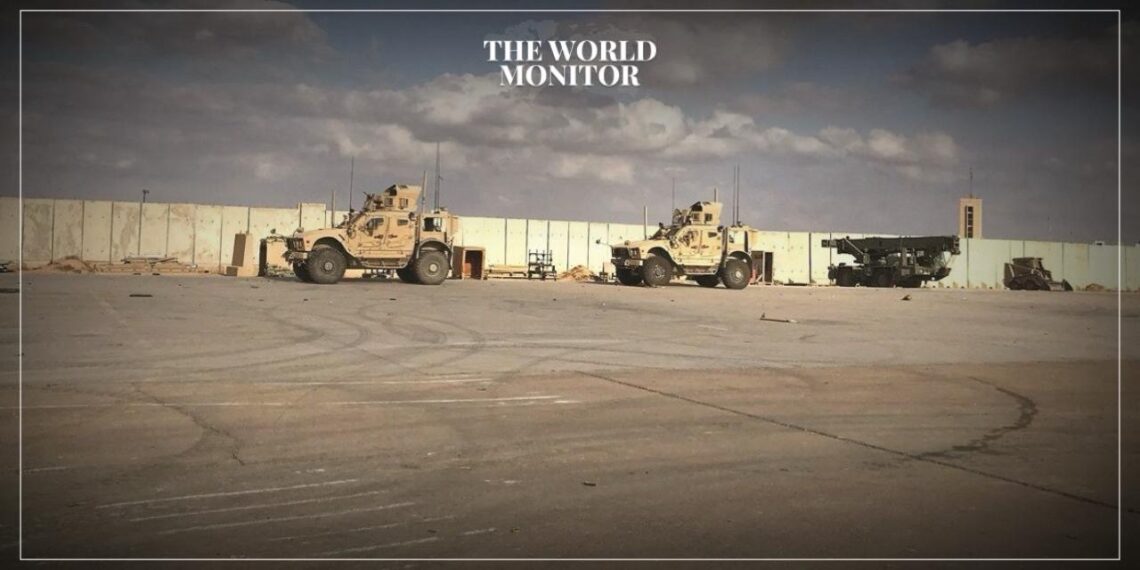Informed Iraqi security sources confirmed that the United States has resorted to a hotline to prevent attacks on its bases in Iraq. Meanwhile, Iraqi Prime Minister Mohammed Shia Al-Sudani has called for vigilance and readiness for urgent security developments amid warnings of potential terrorist acts following strikes on the Jurf al-Sakhar area north of Babylon a few days ago.
The sources stated that “senior U.S. military leaders are concerned that the strike on Jurf al-Sakhar may lead to escalations against their bases in Iraq, especially the Ain al-Assad base, which has been the primary target of drones and rockets over the past months.”
The sources added that “the past few hours have seen intense communications between American and Iraqi leaders via the hotline, in an attempt to convey the seriousness of any response and that Washington is not looking to escalate the situation.” They noted that the U.S. cannot keep the Ain al-Assad base closed for weeks amid fears of direct targeting of logistical supply lines.
The same sources explained that “American bases in Iraq have round-the-clock air cover within a 30-kilometer radius, with a high level of alert. They highlighted that de-escalation messages through the hotline are ongoing.”
Other Iraqi sources anticipated that “armed groups’ response to the American bombing would be traditional, using drones to strike the Ain al-Assad base or targeting the vicinity of the American embassy in Baghdad.” However, these sources warned that such actions “would have extremely serious repercussions.”
Prime Minister Mohammed Shia Al-Sudani, who is constitutionally the Commander-in-Chief of the Iraqi Armed Forces, has directed vigilance and readiness for urgent security developments.
A statement from the Prime Minister’s media office noted that Al-Sudani visited the Baghdad Operations Command headquarters last Thursday, where he reviewed the details of security plans, the progress of security operations, and met with several officials and security and military leaders.
During the visit, Al-Sudani emphasized “the necessity of constant vigilance and readiness for urgent security developments, raising the level of intelligence and information coordination among security agencies in operational sectors, updating security plans, and relying on modern technological means to achieve security stability that supports the government’s plans to continue providing services and implementing comprehensive developmental projects.” He also stressed “the importance of enhancing the ability to quickly address security challenges.”






